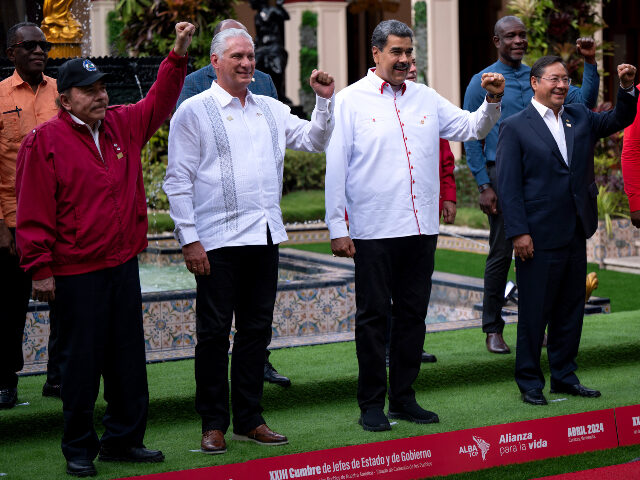Cuba’s communist regime has increased its demands in recent weeks for Cubans abroad to finance it, asserting political support is not enough after ruining the country over the past six decades.
The disastrous communist policies of the Castro regime have not just forced Cubans to endure ever-worsening inhumane living conditions but have pushed Cuba to the brink of complete ruin. The island nation presently faces a severe humanitarian crisis marked by widespread shortages of food, medicine, and basic supplies, as well as near-endless blackouts caused by constant failures of Cuba’s derelict power grid. The power grid completely collapsed in October and is barely functional at press time.
The dire communism-caused disaster in Cuba has led a growing number of desperate Cuban nationals to scavenge through garbage to survive. In July, the Castro regime implemented a series of “wartime economy” measures to “save socialism.” Some of the measures included additional price controls on hard-to-find food items and more regulations on Cuba’s non-existent “private sector.”
The new measures have had no measurable effect on Cuba’s problems. As a result, the cash-starved regime is now reaching out to international sympathizers and ideologically aligned activists, pleading with them to engage in “economic cooperation” with Cuba.
Last week, the Cuban Institute of Friendship with the Peoples (ICAP), a Castro regime institution, held its 19th “European Continental Meeting of Solidarity with Cuba” at the headquarters of the French Communist Party in Paris.
The event was organized by the head of ICAP Fernando González, one of the “Cuban Five” spies who infiltrated the Cuban exile community in the United States. The group is considered responsible for providing the Castro regime with information that allowed the communist regime to shoot down two planes in 1996, killing four American citizens. González was released by the administration of former U.S. President Barack Obama in 2014 and given a hero’s welcome in Havana.
González pleaded with event participants to provide economic aid to the Castro regime, stressing the “importance” of promoting group visits to Cuba to boost its ailing state-controlled tourism industry. Tourism is one of the Castro regime’s main sources of income that, much like the rest of the country, is facing a severe crisis.
Other sectors that the communist representatives listed as “priority” for potential financial aid “cooperation” included health, food, and renewable energies, emphasizing that the Cuban “solidarity movement” can participate in solutions to overcome the alleged U.S. “embargo” of the nation.
The Castro regime has for half a century avoided taking any responsibility for Cuba’s complete collapse. Instead, it has repeatedly blamed the country’s woes on the United States “embargo,” a narrative that the Cuban delegation in Paris once again parroted.
The “embargo,” implemented in 1960, includes a series of regulations that mildly limit economic activity between the two countries. The “embargo” does not hinder Cuba’s tourism activities nor its ability to trade with more than 190 other nations around the world.
The “embargo” also does not prevent Cuba from receiving economic aid from the European Union, which has provided Cuba with hundreds of millions of euros in financing since 1988. The EU’s financial aid to the Castro regime has been widely criticized by the Cuban diaspora, with several activists calling for its end, as it has had no effect on improving the living conditions of the impoverished Cuban citizens.
Similarly to the Castro regime pleading in Paris with its international ideological allies to offer economic aid, Castro regime officials held an event in New York in September in which the ruling communists asked the Cuban diaspora in the United States — which mainly exists as a result of Cubans fleeing from communism — to help finance the authoritarian regime they and their families fled from.
Christian K. Caruzo is a Venezuelan writer and documents life under socialism. You can follow him on Twitter here.

COMMENTS
Please let us know if you're having issues with commenting.